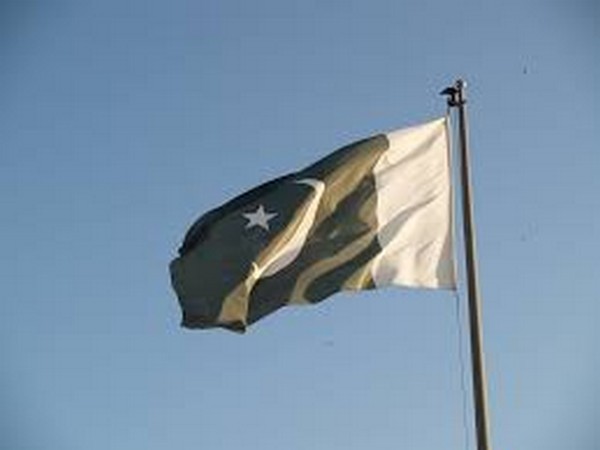
It is dangerous to be an Ahmadi in Pakistan, says US expert

London [UK], June 21 (ANI): On the issue of Ahmadi Muslims being a routine target of blasphemy laws in Pakistan, Knox Thames, a former US adviser on religious minorities in Asia, said that it has become quite dangerous to be an Ahmadi in Pakistan.
Thames, a visiting expert at the US Institute of Peace, said at a podcast with Peace for Asia that Ahmadis, who had left from colonial India to Pakistan during the partition in 1947, view themselves as within Islam and claim their Muslim identity as a critical part of their faith.
“Islamic schools of thought generally have viewed Ahmedi ideology as outside of Islam,” he said, adding that though ideological tensions remain between neo-revivalist groups and traditionalists, the situation in Pakistan has moved beyond the illogical and efforts have increased to erase the Ahmadism to make it equivalent to blasphemy.
Thames also recalled the large-scale Lahore riots in 1953 where hundreds of Ahmadis were killed and the livelihoods of thousands more were destroyed.
“Since then, we have observed a slow slide towards marginalisation, discrimination and prosecution and today, in the entire cottage industry, this encourages boycotts, castigates Ahmeddis, excludes them from the society and even incites violence against them,” he said at Peace for Asia.
While many countries like the UK have introduced an official faith, Pakistan has actually declared who is not a part of their established religion, he added.
The expert also said that during the rule of former Prime Minister Zulfikar Ali Bhutto, the premier had catered to Pakistan’s right-wing by amending the Constitution to literally write the Ahmedis out of the Islamic faith.
He also said that Abdus Salam, the first Muslim man to win the Nobel Prize, was celebrated at home due to his Ahmadi faith and textbooks never mention his success.
Despite this, Thames said that every Ahmadi Muslim he has met is very patriotic towards Pakistan. “That love is never returned to them by their government, laws or many people of the society,” he said.
Lamenting that Ahmadis are illogically shunned aside despite being very entrepreneurial and having the ability to be a growth engine for the country, the US visiting expert said that Prime Minister Imran Khan had also invited an economist – also an Ahmadi – from the prestigious Princeton University to join his Board of Advisers. He was later pushed out of the advisory council due to his faith.
Speaking on restrictive voting rules against the Ahmadis, Thames said: “This is a challenge throughout South Asia… You are seeing extreme forces using a ballot box to enforce their religious beliefs.”
“There is a climate of impunity that exists across Pakistan that if you challenge the extremist interpretations of faith then you risk your life,” he further remarked in the Peace for Asia podcast.
He also said that extremist forces are so politically active that they can intimidate government officials to not arrest any person who is accused of murdering others in cold blood. He also said that some communities have become so twisted that they celebrate the murder of a person instead of saving a vulnerable community.
In April, the European Union raised concerns over Pakistan’s harsh blasphemy laws as they are “often misused to silence opponents and their defenders and to discriminate against religious minorities” and pointed Ahmadi Muslims are probably the most at risk.
“They are often misused to silence opponents and their defenders and to discriminate against religious minorities, with severe negative effects on the rights to freedom of expression and freedom of religion or belief. Ahmadi Muslims are probably the most at risk,” he added.
Ahmadis, a four million-strong minority group in Pakistan, have been facing death threats, intimidation and a sustained hate campaign for decades.
Last year, a 168-page report by the UK-based All-Party Parliamentary Group (APPG) for the Ahmadi Muslim Community had revealed details about the discrimination the Ahmadi community has been facing in Pakistan.
The report titled “Suffocation of the Faithful – the persecution of Ahmadi Muslims in Pakistan and the rise of International Extremism” categorically says that persecution against the peace-loving community intensified following the partition of the Indian subcontinent and the formation of Pakistan.
“This culminated in the events of 1974 when Prime Minister Zulfikar Ali Bhutto turned the anti-Ahmadi movement into fully-fledged state-sponsored persecution. He enacted a 1974 Constitutional Amendment specifically targeting Ahmadi Muslims, declaring them ‘not Muslims for purposes of law and constitution’. It was a watershed moment in Pakistan’s history”, said the report. (ANI)

















POST COMMENTS (0)